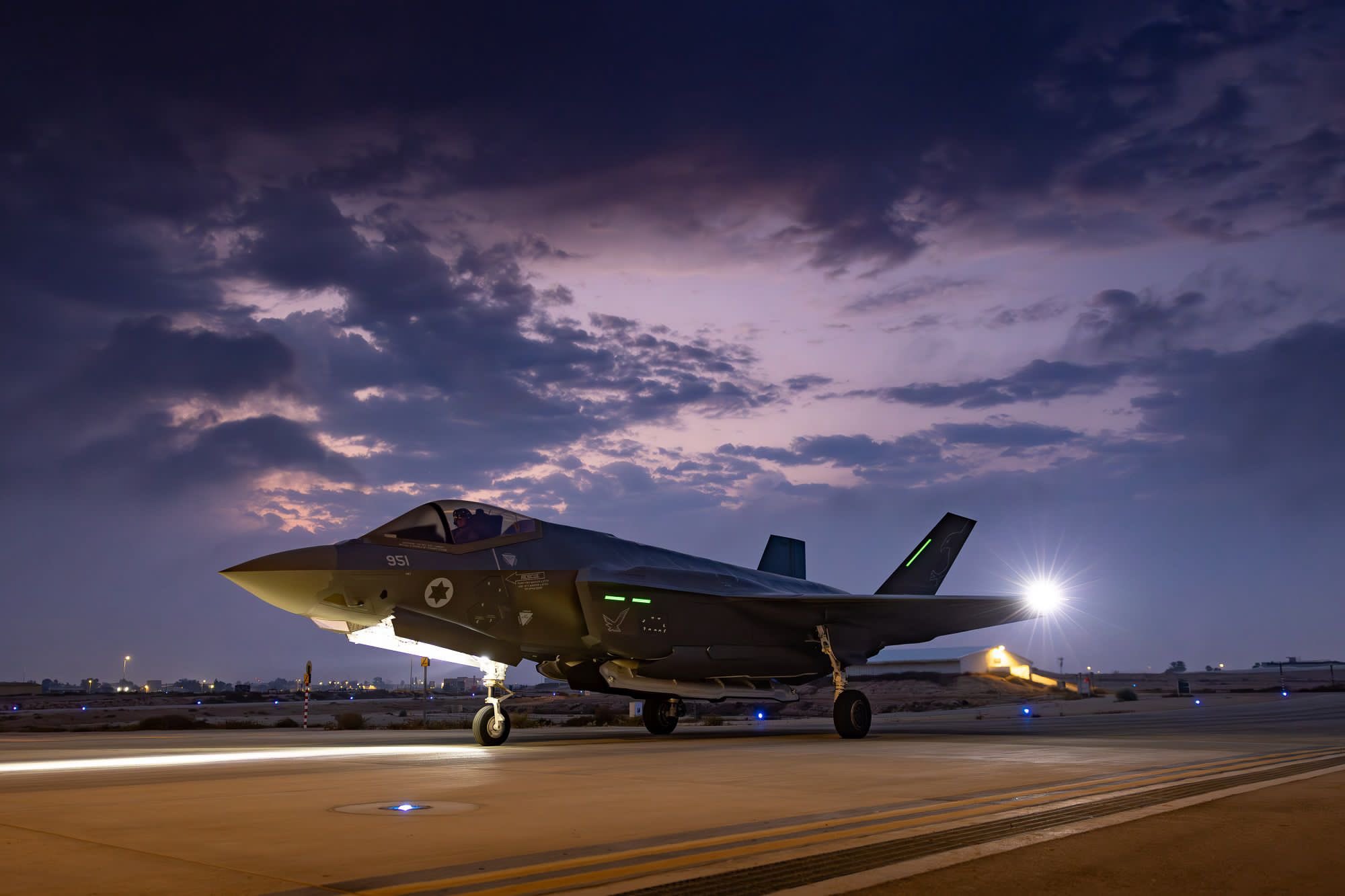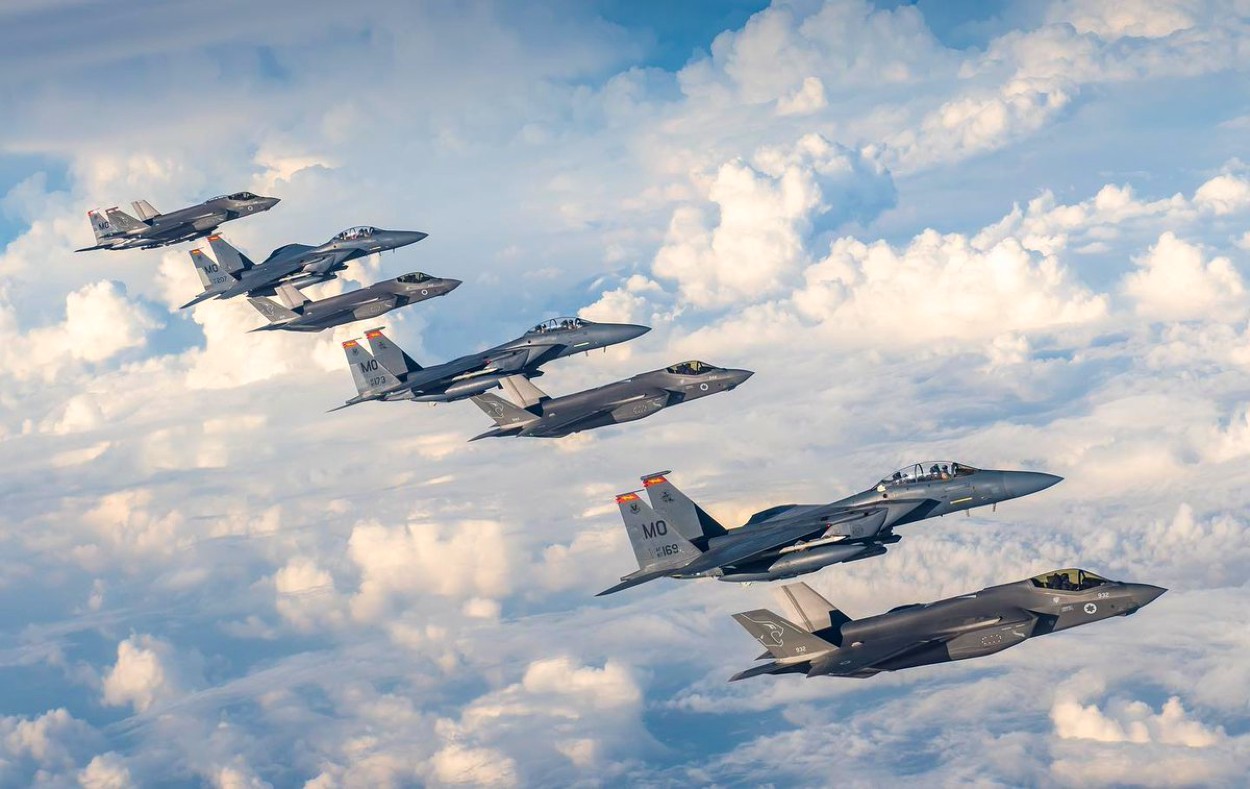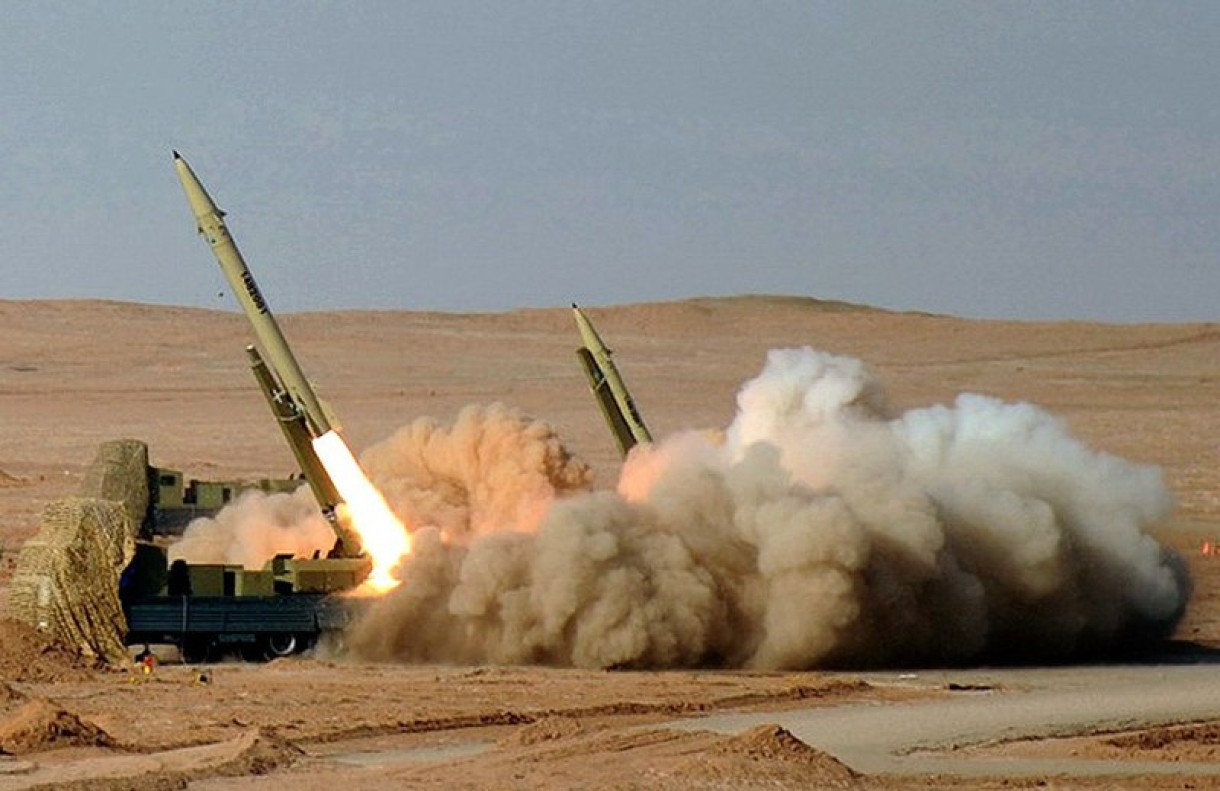The secret exercise by the Israeli Air Force (IsAF) over the Cypriot air space with elements of US support suggests Tel Aviv always anticipated Iran to retaliate after it bombed Tehran’s embassy in the Syrian capital of Damascus.
The Israeli strike on Tehran’s embassy in Damascus killed 12 people, including Mohammed Reza Zahedi, a senior leader in Iran’s Islamic Revolutionary Guard Corps (IRGC), and six other guard members.
While this is no surprise given how it has long tested Tehran’s red lines, the drills suggest that Israel might have far deeper and long-term goals for which it might be willing to risk a short, sharp, wider regional war.
Other analysts say that Israel aims to limit the impact of the grinding and painful operations inside Gaza that are engaging a lot of Israeli resources by drawing the US into a regional war with Iran.
And those long-term goals cannot be achieved by merely striking Iranian military targets in response to a retaliation by Tehran but its nuclear facilities.
This is because although Iran’s Islamic Revolutionary doctrine bans the military use of atomic energy, its nuclear enrichment still gives it massive leverage before Western powers and ensures what it believes is its “survival” in a permanently hostile environment led by Israel and the United States.
US, Israel & Iran’s Nuclear Facilities
Israel, the US, and Western allies say that Iran is enriching uranium to levels of purity that have no civilian use and are bringing it to the threshold of producing a nuclear weapon.
Israel also has a history of carrying out strikes on enemy nuclear facilities in the past, a famous one being June 1981’s Operation Opera, where it bombed Iraq’s nuclear reactor at Osirak during Saddam Hussein’s regime.
Additionally, it has also practiced air raids on Iranian nuclear facilities in the recent past when tensions were high.

Iran has a host of nuclear facilities, including research reactors at Bonab, Ramsar, and Tehran; a heavy water reactor and production plant at Arak; a nuclear power station at Bushehr; a Uranium mine at Gachin; a Uranium conversion plant at Isfahan; a uranium enrichment plant at Natanz, Qom; and another underground Uranium enrichment facility at Fordow.
Recent IsAF Exercises
Reports quoting Israeli military correspondent Doron Kadosh said that the IsAF conducted a drill “simulating the scenario of an Iranian attack…in cooperation with Cyprus and the United States forces.”
“The participants are said to have practiced long-range attacks, playing out the scenario of retaliation against Iran,” reports quoted Kadosh saying on Israeli Army Radio.
Kadosh wrote: “As part of increasing preparation for Iran’s possible response, which may also be followed by an Israeli response on Iranian soil, in recent days, a joint exercise was carried out with the Cypriot army in the airspace of Cyprus, simulating an air operation and an attack on a remote target.”
Kadosh also quoted a senior IDF official as saying: “We know and are prepared to act in any arena and maintain independent abilities to act on our own—we don’t rely on anyone.”
April 11 also saw Israeli Prime Minister Benjamin Netanyahu visiting the Tel Nof Airbase, where he said the country was preparing for challenges on other fronts and to “address Israel’s security needs in defense and offense.”
The base hosts an F-15 squadron. Referring to the threats from the Islamic Republic regarding an attack on Israel, stated, “We have a simple principle: whoever harms us, we will harm them back.” Israel’s F-15 squadron comprises the primary weapons of the country’s air force for long-range attacks.

Any aerial strike might involve a large air “package,” with many, many planes meant as decoys to draw and engage Iranian air defenses, but will nevertheless require both F-15s and F-35s for radar jamming, Electronic Intelligence (ELINT), and weapons release roles.
Both sides face mutual military advantages and disadvantages. Israel has a vastly qualitatively superior air force with Generation 4.5 and Generation 5 jets. Iran makes up for its lack of conventional strength with a massive ground army, a stockpile of tanks and artillery, and a production capacity that far outstrips Israel. It also has an enormous and diverse inventory of tactical conventional and nuclear ballistic missiles and drones.
Target Is Iran’s Atomic Plants
The targets the IsAF must have practiced hitting would be Iranian nuclear facilities, given how they were described as “remote.” This is also because previous exercises were conducted in the same region and with the same exact same intent.
In June 2022, dozens of IsAF jets conducted “air maneuvers” over the Mediterranean Sea “simulating striking Iranian nuclear facilities,” according to the Times of Israel.
The Israeli Defense Forces (IDF) said the drill included “long-range flight, aerial refueling, and striking distant targets.” Channel 13 news later revealed that the drills were part of the larger Chariots of Fire exercise, which involved more than 100 aircraft and navy submarines and spanned 10,000 kilometers.
These exercises, too, took place in Cyprus. “The jets were refueled twice during the simulation, as they circled Cyprus and conducted mock airstrikes in Israel,” the report said.
TOI added that Chariots of Fire was aimed at simulating “a wide-scale strike in Iran, including against its nuclear facilities.” Chariots of Fire, which involves nearly all branches of the IDF, has been focusing on training for fighting on Israel’s northern borders, including against the Iran-backed Hezbollah terror group in Lebanon.
Earlier in 2021, then IDF Chief of Staff Aviv Kohavi announced that he had instructed the military to “begin drawing up fresh attack plans against Iran.” By September 2021, Kohavi said the army had “greatly accelerated” preparations for action against Tehran’s nuclear program.

Iran Deterred By The US, Not Israel
While Israel says it can independently confront Iran militarily, it still relies on the broader American military protection. This was evident in the US’s expressions of support for Israel after the latter struck the Iranian embassy in Damascus.
This is also because the air raid was unprovoked and admittedly in contravention of international norms of keeping embassies and foreign offices outside the bounds of military action. Consulates and diplomatic offices of a country in any nation are considered the sovereign territory of that country.
The US Secretary of State Antony Blinken, in an overnight call with Defense Minister Yoav Gallant, made clear that the US “will stand with Israel against any threats by Iran and its proxies.” US President Joe Biden also assured “ironclad” support for Israel against potential Iranian threats in his statement on April 10.
Moreover, the recent exercises over Cyprus had American participation, which also serves as the greatest deterrent to Iran. Unnamed US intelligence sources told CNN that Iran is unlikely to attack Israel directly out of fear of American and Israeli reprisal and will instead urge its various proxies in the region to launch attacks on its behalf in the coming days. Other reports in the US media claim an impending Iranian attack on Israel.
Meanwhile, US President Joe Biden says he expects Iran to attack Israel “sooner than later” as fears increase of Iranian retaliation. Israel says it is ready to defend itself. Biden told Iran: “Don’t.” “We are devoted to the defense of Israel. We will support Israel,” Biden said. “We will help defend Israel, and Iran will not succeed.”
- The author can be reached at satamp@gmail.com
- Follow EurAsian Times on Google News




